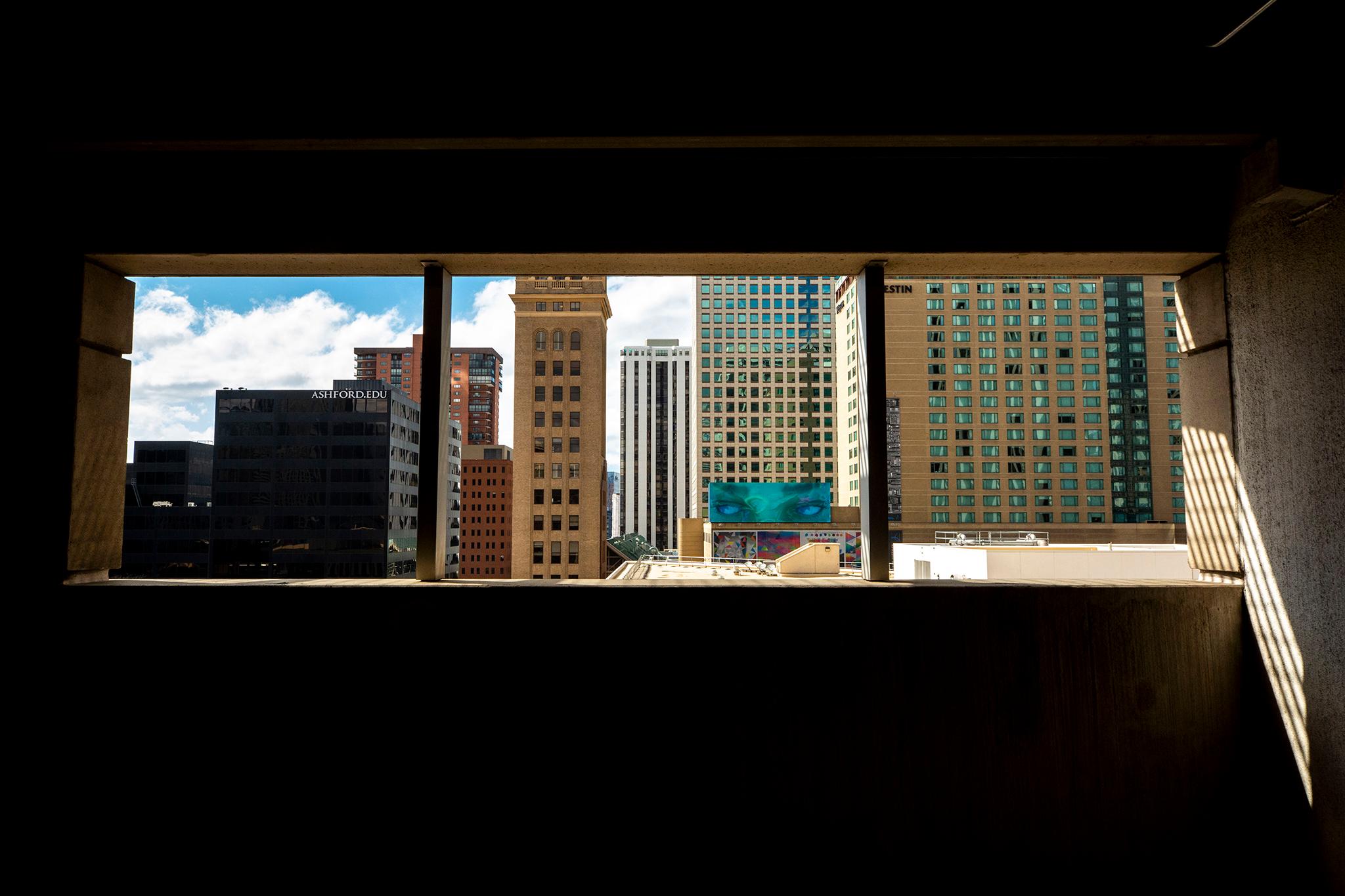
More people are getting out in downtown Denver after more than two years of being cooped up at home. But they’re still not really going to the office.
A report from the Downtown Denver Partnership finds that of all the reasons to go downtown, work remains the weakest draw as more companies settle into a hybrid work model. The average number of office workers showing up on a given weekday in May was 43,000 – less than half of the pre-pandemic average, according to the report. People especially don’t want to come in on Monday and Friday, with Tuesday through Thursday showing the highest level of office activity.
The report’s authors wrote that of the indicators they track, employees returning to work has been the slowest to return to pre-pandemic numbers.
On a positive note, Google mobility data show people are spending less time at home, and restaurant reservations and hotel occupancy are on the upswing, the report found. Still, the number of people downtown on a given day is stuck well below pre-pandemic levels. About 185,000 people on average were out in downtown Denver daily in May, compared to more than 250,000 in May 2019.
Downtown boosters have been trying to revive the heart of Denver’s business district, but it’s getting harder to pull off as remote work becomes more deeply entrenched. Roughly a quarter of office space in the area is sitting empty, according to the most recent data from real estate services company CBRE.
The lack of office workers is straining businesses that rely on that foot traffic. Take Erik Riggs, the owner of Freshcraft, a restaurant and bar that specialized in craft beers just off the 16th Street Mall. He made the difficult decision to close down when his lease expired this month.
“The most noticeable loss is lunch business,” Riggs said. “I think downtown’s all over the world, they’re going to take the longest to bounce back from this. It’s just … business has changed.”
In a sign of the times, his landlord offered to work with him on a month-to-month basis rather than renewing the kind of long-term lease that’s typical in commercial spaces. But even that didn’t make sense for Riggs. He would rather have time to spend with his two young children and find work with better hours and a stable paycheck. He’s going back to school for computer engineering.
“Business [downtown] isn’t coming back the way people hoped,” Riggs said.







